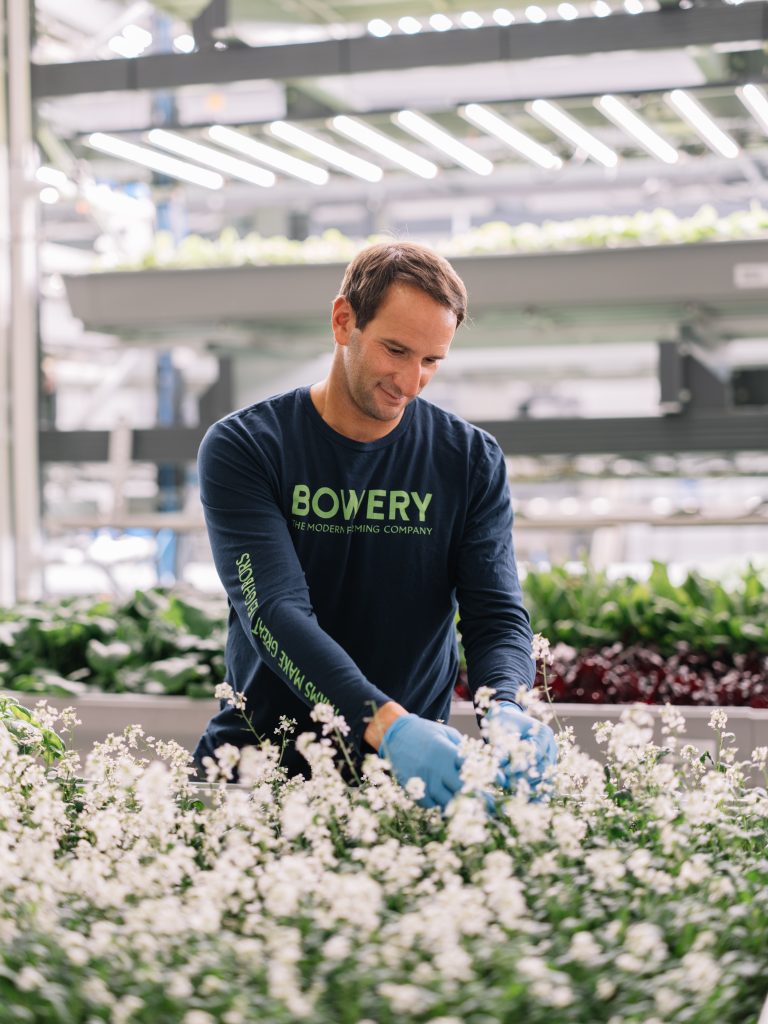The food we eat has a tremendous impact on the health of the planet
Yes, the climate is changing. Yes, we have until 2030 to curb global greenhouse gas emissions. And yes, the problem is huge. Experts have said that it might only be solved by large-scale collective action. So with Climate Week in full swing and last Friday’s youth marches fresh on our minds, we wanted to share a few of our favorite companies that are making a difference.
According to a recent report in Science Today, dietary change can deliver environmental benefits that outpace agrarian production. Our agricultural system is a huge contributor to global emissions and it’s clear that the food we eat, the way it’s grown, and where it’s sourced have a tremendous impact on the health of the planet.
Minimize Meat
One of the biggest changes you can make is to eat less meat. The United States consumes, per capita, three times more meat than the global average, and meat production—especially beef—is a major greenhouse gas emitter. Animals produce a lot of methane, they graze an immense amount of land, and production requires complex and wasteful transport to get the product to the point of consumption. Instead of eliminating meat outright, consider supplementing your diet with protein-rich plant substitutes like legumes or pulse crops. These plants (think peas and beans) take nitrogen out of the air and into the soil, effectively acting as a natural fertilizer. Companies like Timeless Seeds in Ulm, Montana are growing these pulse crops on land previously treated with chemical fertilizer to grow commoditized wheat—a process that restores the health of the soil while producing a more sustainable protein source.
Seed Security
 While we’re talking about eating more plants, did you know that although four crops provide half of the world’s food calories, more than 2 million distinct varieties are recorded in seed vaults? Neither did we. That’s why we’re supporting companies who support the seed. Specifically, we love Row 7 Seed Co. and the work their team of chefs and seed breeders, headlined by Blue Hill at Stone Barns co-owner Dan Barber, are doing to advance the idea that flavorful food and high yield aren’t mutually exclusive. We think that breeding more variety into our seeds not only gives farmers the power to grow better tasting and better performing plants, but also signals a shift towards a more diverse agricultural future.
While we’re talking about eating more plants, did you know that although four crops provide half of the world’s food calories, more than 2 million distinct varieties are recorded in seed vaults? Neither did we. That’s why we’re supporting companies who support the seed. Specifically, we love Row 7 Seed Co. and the work their team of chefs and seed breeders, headlined by Blue Hill at Stone Barns co-owner Dan Barber, are doing to advance the idea that flavorful food and high yield aren’t mutually exclusive. We think that breeding more variety into our seeds not only gives farmers the power to grow better tasting and better performing plants, but also signals a shift towards a more diverse agricultural future.
Waste not, Want not
Nearly 40 percent of food gets needlessly tossed in the US. At every stage of the food cycle food goes uneaten: either getting left in the field or not making the cut for grocery store shelves. Misfits Produce wants to solve the latter problem by creating a market for unloved veggies that are too small, too big, or too lumpy. They offer a selection of “weird” veggies that didn’t make the shelf to their consumers at a 40% discount.

Local Legends
No matter what you’re eating, think about sourcing it locally. These days it’s easier than ever to find great food near you—in fact, 80% of Americans live within 50 miles of a local farm. By supporting neighborhood markets, growers, and purveyors, you not only reduce the stress placed on the environment by long-haul trucking and air freight, but also can make a great connection with your local farmer. Plus, knowing what’s in season is always great dinner party conversation.
Keep it Clear
 Increasing transparency in the food system is a solution to systemic problems far and wide. For human health and safety, understanding the origin of our food goes a long way in mitigating the effects of food borne illness and combatting wasteful practice. Transparency is especially challenging when it comes to seafood. Dock To Dish is innovating the wild seafood space by creating a “network of small-scale fishermen, marine biologists, and sustainability advocates that work in teams from ports and harbors across North and Central America.” Gradually rising ocean temperatures, as well as unsustainable fishing practices place a heavy burden on marine life and our planetary ecosystem—transparency is key to avoid supporting a system that can’t be sustained.
Increasing transparency in the food system is a solution to systemic problems far and wide. For human health and safety, understanding the origin of our food goes a long way in mitigating the effects of food borne illness and combatting wasteful practice. Transparency is especially challenging when it comes to seafood. Dock To Dish is innovating the wild seafood space by creating a “network of small-scale fishermen, marine biologists, and sustainability advocates that work in teams from ports and harbors across North and Central America.” Gradually rising ocean temperatures, as well as unsustainable fishing practices place a heavy burden on marine life and our planetary ecosystem—transparency is key to avoid supporting a system that can’t be sustained.
We won’t reverse global warming overnight, but together we can make a difference. Our collective choices are the most powerful force on the planet and staying informed on the issues gives us the best chance to make decisions that matter. For more information on climate change and how your choices matter here are a few helpful resources:



